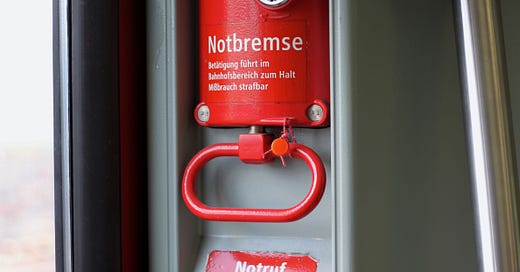An emergency brake won’t stop a train unless it’s moving. And the Stormont brake in the new Windsor framework won’t have any effect until the Northern Ireland legislative assembly gets going again.
Will the prospect of blocking new EU legislation encourage the Democratic Unionist Party to take its place in the Northern Ireland executive? We shall see. Wh…
Keep reading with a 7-day free trial
Subscribe to A Lawyer Writes to keep reading this post and get 7 days of free access to the full post archives.



